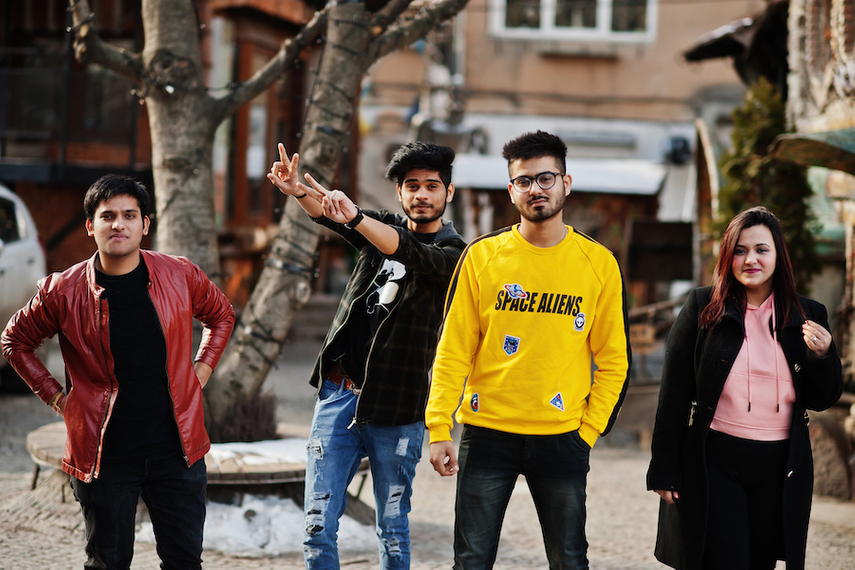
In today’s dynamic marketing ecosystem, one audience consistently rewrites the rules: Generation Z. Born between the mid-1990s and early 2010s, Gen Z consumers are not only growing up with digital technology but also shaping it. They don’t merely consume media; they co-create, remix, and personalise it in real time.
For marketers, this shift represents both—a challenge and an opportunity. To connect meaningfully, brands must let go of conventional strategies and embrace three essential pillars: memes, micro-moments, and authentic participation.
For Gen Z, memes are a cultural code—layered expressions of identity, emotion, politics, and shared experience. They are not just fleeting jokes but digital dialects that communicate everything from heartbreak to social critique. In sectors like entertainment, food delivery, and lifestyle, some players have effectively adopted meme-driven marketing by acting as cultural commentators instead of overt advertisers. Their success lies in crafting content that feels native to online subcultures—relevant, fast, and witty.
However, this landscape demands authenticity. Gen Z can sense when a brand is trying too hard, and a poorly executed meme can quickly backfire. To resonate, brands need teams that live the culture—not the ones which just study it. Meme marketing is not about content calendars; it is about spontaneity, timing, and understanding the emotional tempo of the internet.
Navigating the attention economy
Welcome to the age of scrolls and swipes, where Gen Z lives in micro-moments—those brief, intent-driven digital interactions where they turn to their phones to learn, decide, or buy something instantly. A Gen Z consumer in India may jump from an Instagram Reel to Google search, and then to a short video on another platform—all within minutes. To stay relevant, content must be mobile-first, brief, and instantly valuable.
A successful example lies in data-driven personalised campaigns in the music streaming space, which turn individual behaviour into engaging, shareable stories. These work not because they are loud, but because they are personal, emotionally resonant, and designed for the current moment. Today, marketers have mere seconds to grab attention and offer value. If it doesn’t click instantly, it is forgotten.
Authenticity and purpose
More than product features or celebrity endorsements, Gen Z cares about values. They are quick to call out performative activism and superficial campaigns. Real impact matters to them—be it environmental action, mental health advocacy, or social justice. What truly resonates are creators and micro-influencers with loyal followings who share unfiltered experiences and perspectives. Their relatability makes them powerful brand partners.
Co-creation also plays a key role. Gen Z does not want to engage only; they want to build. From user-generated content to co-designed products, they are drawn to brands that invite collaboration. It is not engagement alone; it is empowerment.
Connection over perfection
So, what does all this mean for marketers? It means shifting from broadcasting to collaborating. Replace polished scripts with memes. Trade ad spots for conversations. Speak the language of the internet, but don’t fake fluency. Be quick, be real, and above all, be accountable.
This generation is not asking brands to be perfect. They are asking them to be present, to listen, and to evolve. They value fun, but also fairness. They want content that entertains, informs, and reflects their world. To win Gen Z, marketers must respect their intelligence, honour their experiences, and mirror their culture—not try to lead it. In a saturated content universe, it is not the loudest voice that stands out but the one that feels true.

— Rajesh Joshi, founder, Chariot Productions Media.



.jpg&h=334&w=500&q=100&v=20250320&c=1)
+(900+x+600+px).jpg&h=334&w=500&q=100&v=20250320&c=1)

+(900+x+600+px)+(3).png&h=334&w=500&q=100&v=20250320&c=1)

.jpg&h=334&w=500&q=100&v=20250320&c=1)






.jpg&h=268&w=401&q=100&v=20250320&c=1)

.jpg&h=268&w=401&q=100&v=20250320&c=1)

(1).jpg&h=268&w=401&q=100&v=20250320&c=1)
